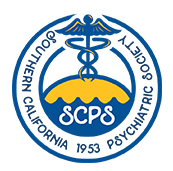The Senate and Assembly Appropriations Committees held their respective suspense file* hearings today. Several of CSAP’s priorities were considered and acted upon. The outcomes are summarized below.
SB 27 (Umberg) would amend the Community Assistance, Recovery, and Empowerment (CARE) Act to expand program eligibility and provide for referral of defendants deemed incompetent to stand trial (IST) to CARE court. Passed out of committee, CSAP-supported bill.
SB 29 (Laird) would extend until January 1, 2030, the period during which a decedent’s personal representative may recover damages for the decedent’s pain, suffering, or disfigurement incurred while alive. The California Medical Association, CSAP, and other medical specialty organizations oppose this bill. The Appropriations Committee has voted to turn the bill into a two-year bill, meaning it will not advance this legislative year; however, the bill is not technically dead for the two-year session so most likely more on this in 2026.
SB 820 (Stern) would create a process for a court to authorize the administration of involuntary medication for a misdemeanor defendant who has been found incompetent to stand trial (IST). This CSAP-sponsored bill passed out of committee on a unanimous vote. Kudos to Senator Stern as he went to the proverbial mat for this bill to not get held.
AB 1105 (Quirk-Silva) would expand the list of facilities that use a secured perimeter, delayed egress device, or both, into which a conservator may authorize the placement of a conservatee to include residential facilities, intermediate care facilities, and skilled nursing facilities. This is also a CSAP-sponsored bill. Unfortunately, this bill was held in committee; however, the author can attempt to move it again in January. CSAP will continue to work with the author’s office on this bill. She has already committed to not letting it go.
Below is a summary of today’s Suspense File actions in the two fiscal committees.
Assembly
261 bills on Suspense; 190 were sent to the Floor; 71 were held
73% pass rate; 27% held rate (includes a few 2-year bills)
Senate
425 bills on Suspense; 309 were sent to the Floor; 116 were held
73% pass rate; 27% held rate (includes a few 2-year bills)
*The Suspense File process has been a part of the Committee Rules since the mid-1980s as a way to consider the fiscal impacts to the state of legislation as a whole. The committee analysis indicates whether a bill’s fiscal impacts meet the criteria for referral to the Suspense File. Bills that meet the Committee’s Suspense threshold are placed on the Suspense File after testimony is taken at a regular-order hearing. A vote-only Suspense Hearing is held prior to the deadlines for fiscal committees to hear and report bills to the Senate Floor. Bills will either move on to the Senate Floor for further consideration or be in held in committee and under submission. At the Suspense File hearing bills are taken up alphabetically by author. There is no public testimony.
After the three day holiday weekend, the Legislature will return for a nine business day sprint to the end of this legislative year, which ends September 12.
